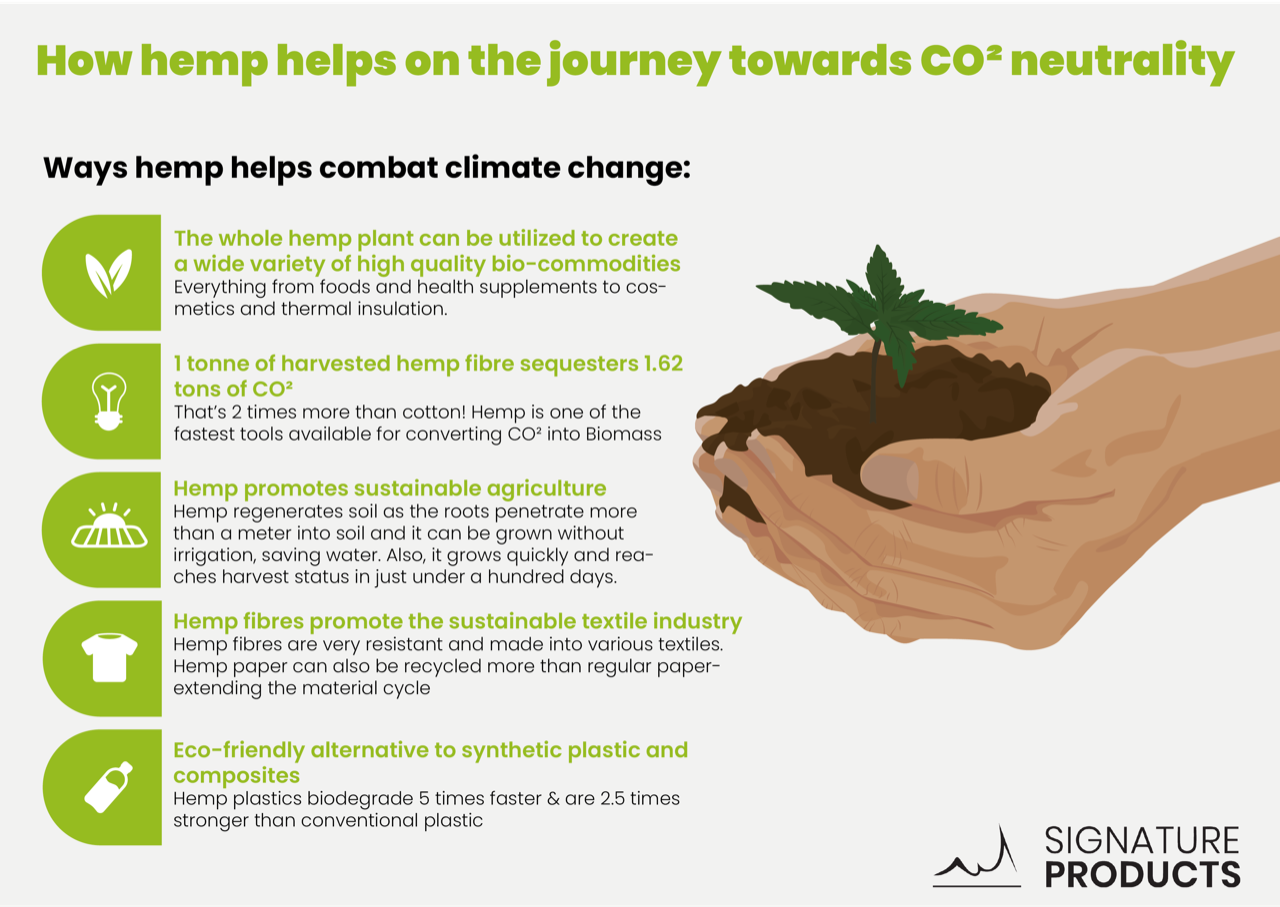Hemp and CO2-neutrality
Hemp is an extremely environmentally friendly and sustainable plant that helps combat climate change. Let’s see why.

Our hearts beat for hemp. And that is not only because of its many health benefits and versatility. Hemp is also an extremely environmentally friendly and sustainable plant that helps combat climate change. Let’s see why.
The whole hemp plant can be used to create a wide range of high quality organic commodities. From protein powder, vegan meat substitutes and hemp milk over cosmetics such as face creams with CBD and massage oils to furniture, clothes and ropes. We could go on and on with this list. And the best thing about it: every part of the hemp plant can be used so nothing has to go to waste. Take the seeds for a high protein snack or salad topping, use the flowers for CBD extraction and infuse the leaves with boiling water for a delicious hemp tea.
Since hemp fibres are very resistant and long-lasting they can promote a sustainable textile industry. Usually there are no pesticides used when growing hemp. Because of this, clothes derived from hemp are very skin-friendly and gentle. Paper made out of hemp can be recycled more often than regular paper and consequently extends the material cycle. Another benefit of hemp paper is that trees grow comparatively slower: while hemp can be harvested three times a year, trees can be harvested only every seven years. A hemp field the same size as a forest brings four to five times as much paper.

One ton of harvested hemp fibre can sequester 1.62 tons of CO2 and store it in the soil. That is twice as much as cotton and also more successful than trees. With this superpower in store, hemp is one of the fastest tools available for converting CO2 into biomass.
Hemp can promote a more sustainable agriculture. That is because the hemp plant has roots as long as two meters which can penetrate the soil and regenerate it hereby. Additionally, hemp doesn’t need any irrigation for growth so it saves a lot of water. Since the plant grows very quickly, it reaches its harvest status in approximately three months only. As already mentioned, hemp usually doesn't need any pesticides for growth. Pesticides can cause allergies and impair the immune system.
Hemp is an eco-friendly alternative to synthetic plastic and composites because it biodegrades five times faster and is 2.5 times stronger than conventional plastic. Automotive companies like BMW, Mercedes and Bugatti already use plastic derived from hemp in their products. Because there are no fossil fuels used for the production of hemp plastics, no carbon dioxide is released when they decompose.

